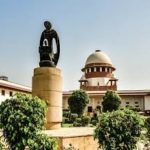The core controversy revolves around the competence of State Legislatures to impose entertainment tax on DTH services when the Central Government also levies service tax on broadcasting. The assessees (DTH operators) contend that their activity is primarily “broadcasting,” which falls under the Union’s taxing power, and therefore they are not liable to pay entertainment tax to the States…. Conversely, the States argue that DTH services constitute “entertainment” and are thus amenable to State-level taxation.
Law Involved The legal dispute primarily concerns:
- The Seventh Schedule to the Constitution of India: Specifically, Entry 62 of List II (State List), which grants States the power to tax “luxuries, including taxes on entertainments, amusements, betting and gambling”…. It also involves Entry 97 of List I (Union List), the residuary entry, under which the Central Government levies service tax on broadcasting….
- The Finance Act, 1994: Particularly Sections 65(105)(zk) and 65(15), which define and impose service tax on “Direct-to-Home” (DTH) broadcasting services….
- Various State Entertainment Tax Acts of Assam, Delhi, Gujarat, Jharkhand, Kerala, Orissa, Punjab, Rajasthan, Tamil Nadu, Uttar Pradesh, and Uttarakhand, which were under challenge….
- Constitutional Principles: The doctrine of ‘pith and substance’ and the ‘aspect theory’ are central to interpreting the entries in the Seventh Schedule and resolving potential overlaps in legislative competence between the Union and States….
- Article 32 of the Constitution: Two writ petitions were filed before the Supreme Court under this Article, challenging the constitutional validity of Section 65(105) (zk).
Reasoning The Supreme Court is tasked with resolving the complex issue of legislative competence to tax DTH services.
- The central argument from the DTH operators is that their activity constitutes “broadcasting service” or “communication,” which is solely within the Union’s legislative domain and taxable under service tax, thus precluding State entertainment tax…. They contend that “entertainment” as per Entry – List II refers to public entertainment, not private DTH services….
- The ‘aspect theory’ is being applied to determine if a single activity (DTH service) can be legitimately taxed by different legislative bodies under different aspects (e.g., as a service and as entertainment)…. The appellants argue that there should be no overlap between the tax entries in List I and List II.
- Differing High Court Judgments: The source highlights that various High Courts have taken contrasting views. Some High Courts, like those of Punjab, Rajasthan, Gujarat, and Kerala, upheld the State’s power to levy entertainment tax on DTH, often viewing the content delivered as ‘entertainment’…. Other High Courts, such as Delhi, Jharkhand, and Allahabad (Uttar Pradesh), dismissed such impositions, indicating that DTH is a service amenable to service tax and not entertainment tax….
- Distinction between Service and Entertainment: Some High Courts distinguished between the ‘incidence’ of service tax (on the license agreement) and the ‘incidence’ of entertainment tax (on individual contracts with customers). However, the appellants maintained that DTH service is a single taxable event and cannot be artificially split into two taxable events for the purpose of taxation.
- The argument also addresses whether the DTH operator controls the content (which is entertainment) or merely provides the broadcasting service.
Holding The specific holding of this judgment is not available within the provided excerpts1…. The provided text primarily outlines the facts of the controversy, the legal framework involved, and the submissions made by the parties and various High Courts. A “Summary of Discussion and Conclusions” is indicated at page 29693, which is beyond the scope of the provided source material.
State Of Kerala And Another V. Asianet Satellite Communications Ltd. And Others
Supreme Court: 2025 INSC 757: (DoJ 22-05-2025)






